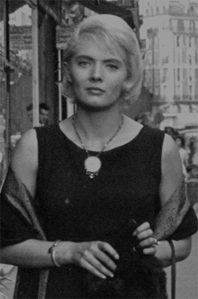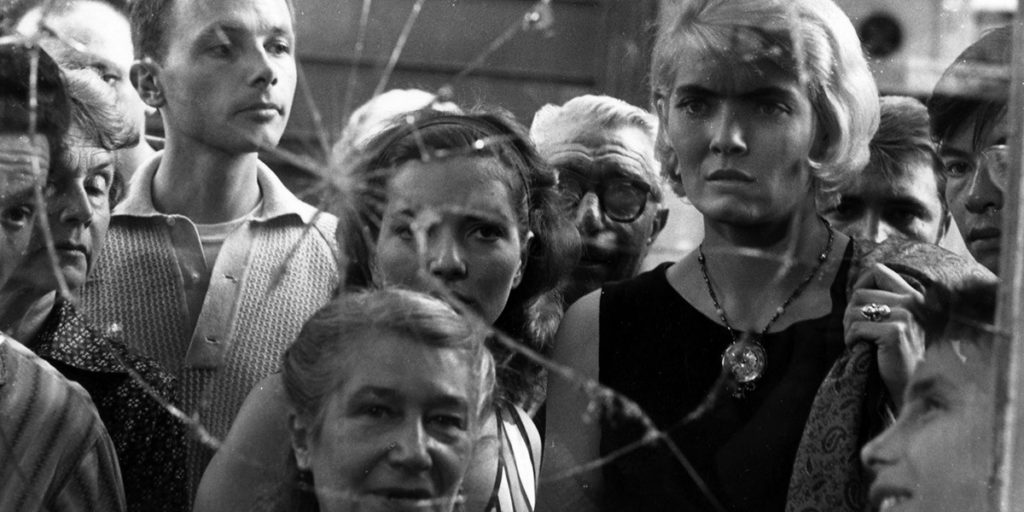
How do I talk about perfection? Cleo From 5 to 7 hints at themes that writer-director Agnes Varda will use in her long career. The communal portrait is here, as the titular singer (Corrine Marchand) hears stories from friends and strangers. But the big one here is how she empathizes with Cleo, a complicated character. Some see her as emotional. She can’t however help her feelings as she’s waiting for her biopsy results. Moments like this can bring the hypochondriac in all of us. Varda depicts that ninety minute period in Cleo’s life in real time and does so with sharp focus.
Cleo is in constant movement during those minutes but there isn’t a hint of anxious hurry in her step. Neither is she biding her time before finally deciding to hear the big news. However, she goes through a lot during the short time that we spend time with her. Cleo even looks different in a few of the film’s thirteen chapters. She’s a lover in one scene and a rebel during the next. Sometimes she blends into Paris’ sidewalks as just another worried citizen. There are also moments when Varda shoots her gloriously, her camera floating to mimic Cleo’s vulnerable interior.
In depicting Cleo’s internal journey, Varda might also be showing us the least sad cancer patient in movie history. In a way this is the cinematic version of that hopeful smile during a funeral. Varda even shows that human impulse to smile and hide our sorrows. It’s easy to feel happy or any other emotion in Paris where anything can cause triggers. One of the first few things that Cleo does is go hat shopping with her assistant Angele (Dominique Davray). This decision is both nonsensical and symbolically fitting. Varda’s both anticipating a melodramatic sub genre and simultaneously criticizing it.
My understanding of cinema during the 1960s is that it had two camps. Either it was a dreary post-realist works or an ornate Hollywood crowd pleaser. Varda’s film is a bridge that combines qualities in both films. Cleo surround herself with beautiful things, her hair extensions, her nightgown, her bed. Varda also found the perfect place within a Parisian park where she meets a tall dark stranger. She’s fighting for beauty and is also re-framing it in a different context. Varda knows that beauty is fleeting but searching for it feels like her and Cleo’s way of persevering through volatility.
Radical Empathy: The Films of Agnes Varda is a retrospective that is now in full swing at the TIFF Bell Lightbox. For more info on tickets and screenings please visit there website right here.
- Release Date: 1962

